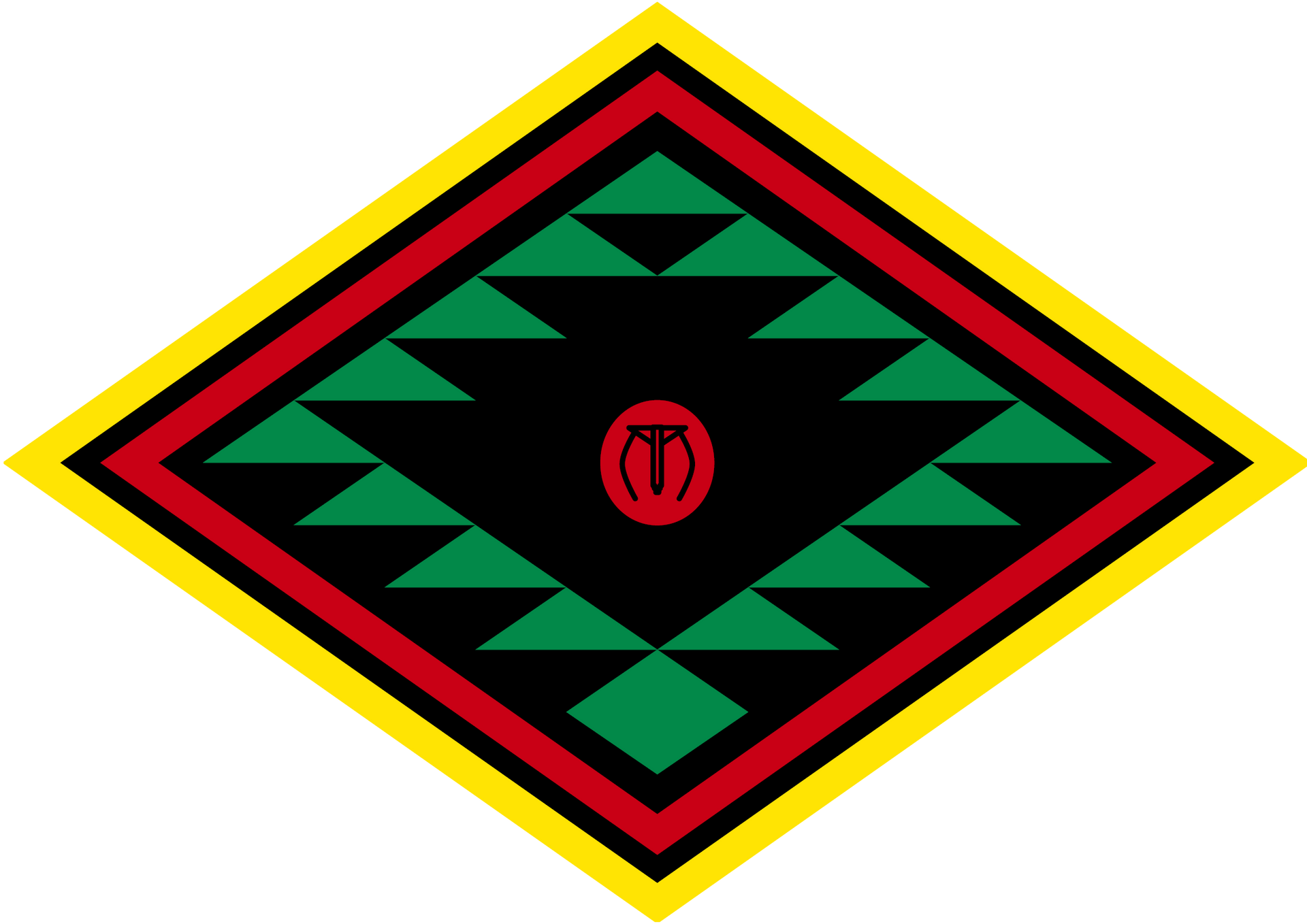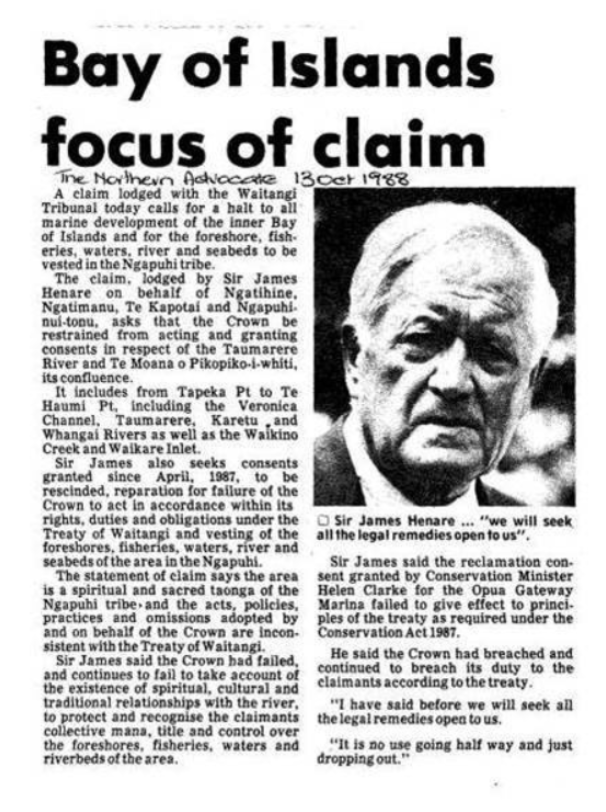Te Tiriti o Waitangi Claims History
ABOUT OUR NGĀTI HINE CLAIMS
One of the very first Ngāti Hine claims was Wai 49 Te Awa Tapu o Taumārere submitted by Tā Himi Henare
Our ancestors have told us to fight on. My words to Ngāti Hine, Ngāti Manu and Te Kapotai is "Be strong, be fixed. Be strong with your opinions or feelings regarding the sacred lands of our ancestors". Taumārere has gathered here today to begin the battle against the Pākehā to stop them from abusing and embittering our river. Tā Himi Henare. (Quote from video interview transcript. Opua, 1988).
ENGAGEMENT IN
TE TIRITI CLAIMS
Te Tiriti (Wai) Claims are allegations by Māori that the Crown has breached Te Tiriti o Waitangi/The Treaty of Waitangi by some actions, inactions, laws, or policies and that Māori have suffered prejudice or harmful effects as a result. For decades Ngāti Hine and other hapū have utilised the Waitangi Tribunal as a vehicle and platform to have their claims and grievances against the Crown inquired into. Grievances that have largely been ignored since the signing of Te Tiriti o Waitangi in 1840. Ngāti Hine has many claims sitting with the Waitangi Tribunal. The Waitangi Tribunal is a commission of inquiry established following the Treaty of Waitangi Act 1975.
The claims and grievances against the Crown are extensive and many are intimate to our whānau. Ngāti Hine claims include individual whānau, trust, district inquiry, historical, kaupapa (thematic inquiries), contemporary and urgent claims. The claims include legislation imposed on Ngāti Hine and Māori, land, sea, language, culture, governance, sovereignty and rangatiratanga.
Te Paparahi o Te Raki Inquiry (Wai 1040)
Te Paparahi o Te Raki (Northland) inquiry (Wai 1040) has hundreds of claims put before the Waitangi Tribunal by hapū from around the rohe. Ngāti Hine has been actively involved as part of the Te Paparahi o Te Raki inquiry (Wai 1040) and other inquiries where the claims are being presented. The claims process is a Crown constructed process. Following the claims process, an inquiry may take place by the Waitangi Tribunal where research and hearings are conducted. Following a hearing a report may be written which the claimants can utilise to negotiate redress with the Crown. Alternatively claimants may choose to go through direct negotiations with the Crown.
STAGE 1 INQUIRY & REPORT
Stage 1 of the Te Paparahi o Te Raki
Inquiry began in 2010 and assessed the meaning and effect of He Whakaputanga me Te Tiriti, and concluded the rangatira who signed Te Tiriti in February 1840 did not cede sovereignty. Our Ngāti Hine tūpuna signed Te Tiriti.
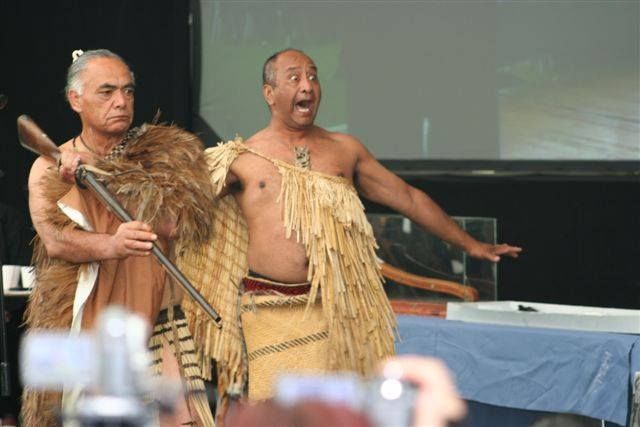 Hirini Henare and Ned Peita
Hirini Henare and Ned Peita
Haratua 2010 - 2011: Te Paparahi o Te Raki Stage 1 hearings and inquiry begins at Waitangi (5 hearing weeks)
Hui-tanguru 2011: Ngāti Hine hosts Te Paparahi o Te Raki Stage 1 final hearing at Otiria Marae.
Whiringa-ā-rangi 2014: Waitangi Tribunal releases He Whakaputanga me te Tiriti.
Erima Henare speaks in Waitangi at the release of the He Whakaputanga me te Tiriti – The Declaration and the Treaty: The Report on Stage 1 of the Te Paparahi o Te Raki Inquiry, 2014.
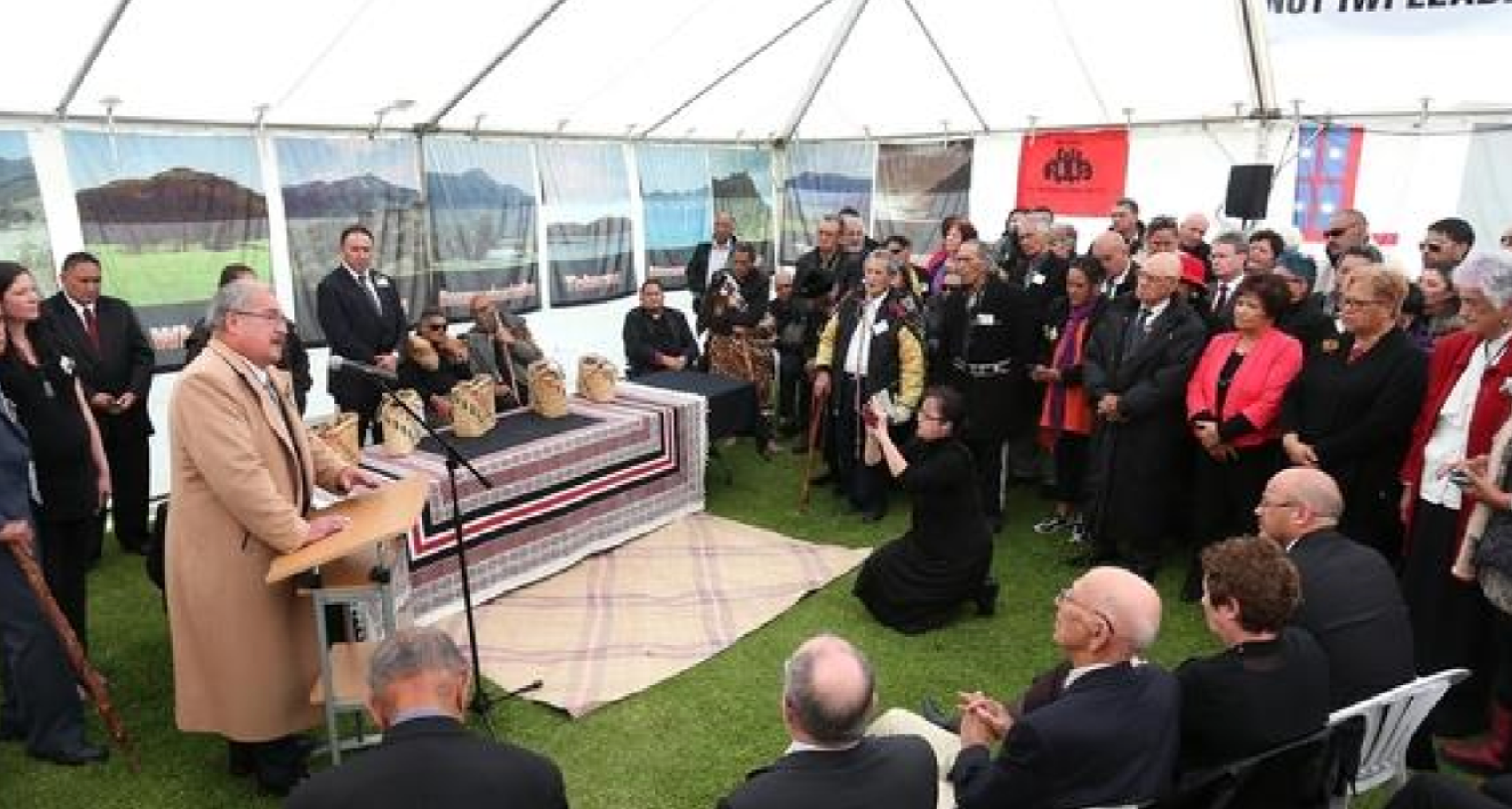
STAGE 2 INQUIRY & REPORT
Tino rangatiratanga me te Kāwanatanga:
Stage 2 of the Te Paparahi o Te Raki Inquiry began in 2013 and considered whether the agreement that was reached in February 1840 was honoured in subsequent interactions between the Crown and Māori with several findings.
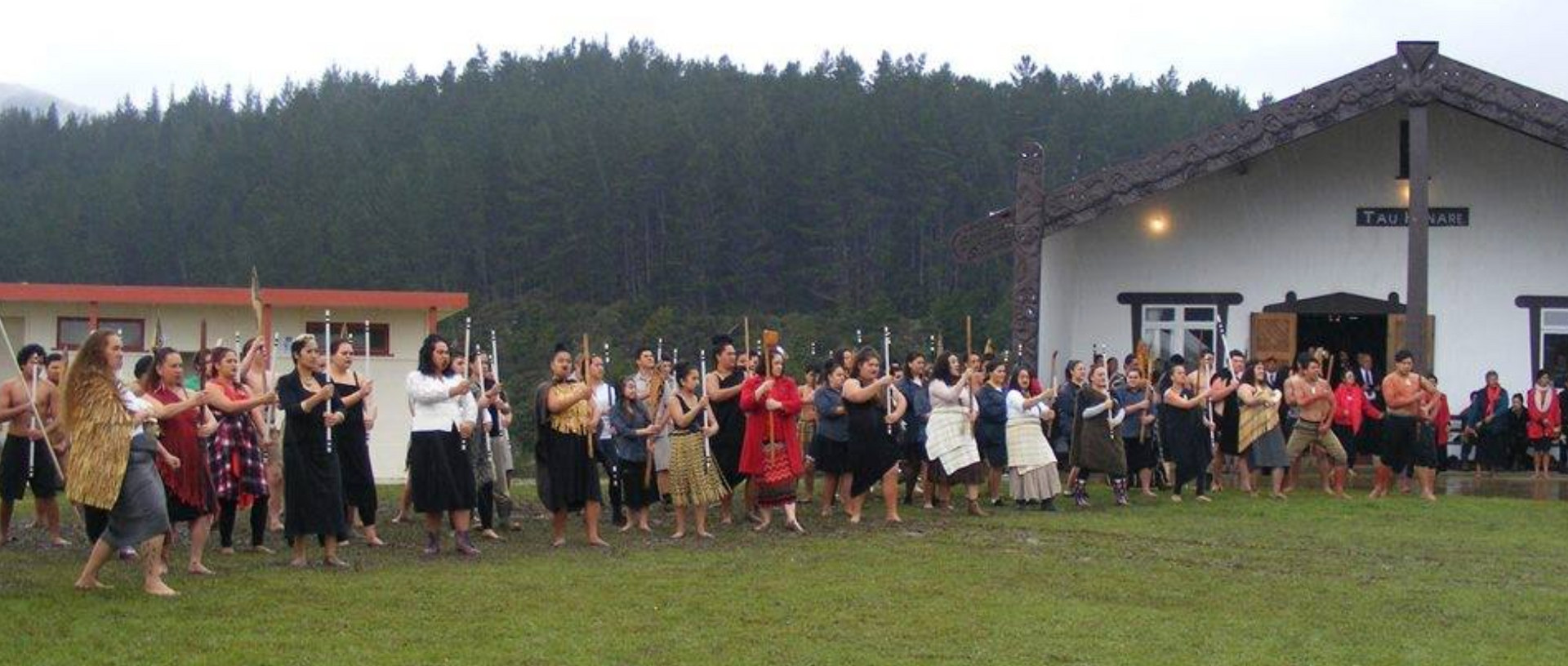
Ngāti Hine powhiri for the Te Paparahi o Te Raki (Wai 1040) Stage 2 Hearing, Week 9, at Tau Henare Marae, Pipiwai, 2014.
2013 - 2017: Te Paparahi o Te Raki Stage 2 Hearings and Inquiry begins (26 hearing weeks)
Here-turi-kōkā 2014: Ngāti Hine hosts Te Paparahi o Te Raki Stage 2 Hearing at Tau Henare Marae. At this hearing Ngāti Hine covered four key kaupapa relating to claims concerning: Rangatiratanga, Whenua, Te Taiao and Tangata. Within these kaupapa many take and grievances were raised including how Ngāti Hine people have been impacted over generations.
An example was seen during the hearing, where the Tribunal were taken on a tour of Pipiwai to show the devastation and deep mamae relating to some of the claims in the valley. For example the impact of the Te Horo Development scheme.
Hakihea 2022: Tino rangatiratanga me te Kāwanatanga: The draft Report on Stage 2 (part 1) of the Te Paparahi o Te Raki Inquiry released.
 DESTROYED HOME #4
DESTROYED HOME #4
Key Waitangi Tribunal Reports
These reports followed the claims, inquiry and hearing processes with findings and recommendations that are significant to Ngāti Hine and ngā iwi Māori.
He Whakaputanga me te Tiriti – The Declaration and the Treaty: The Report on Stage 1 of the Te Paparahi o Te Raki Inquiry
The Wai 1040 Stage 1 report, He Whakaputanga me te Tiriti, concerns the meaning and effect of the Treaty in February 1840, when the first signings of te Tiriti took place in the Bay of Islands and the Hokianga. The Tribunal concluded that the rangatira who signed Te Tiriti o Waitangi in February 1840 did not cede sovereignty to the British Crown.
Tino rangatiratanga me te Kāwanatanga: The Report on Stage 2 of the Te Paparahi o Te Raki Inquiry
Stage 2 considered whether the agreement that was reached in February 1840 was honoured in subsequent interactions between the Crown and Māori. The Tribunal made a number of findings relating to the key issues, but overall, it found that the Crown overstepped the bounds of its kāwanatanga (authority to govern) in Te Raki between 1840 and 1900, leading to the erosion of Te Raki Māori rangatiratanga.
